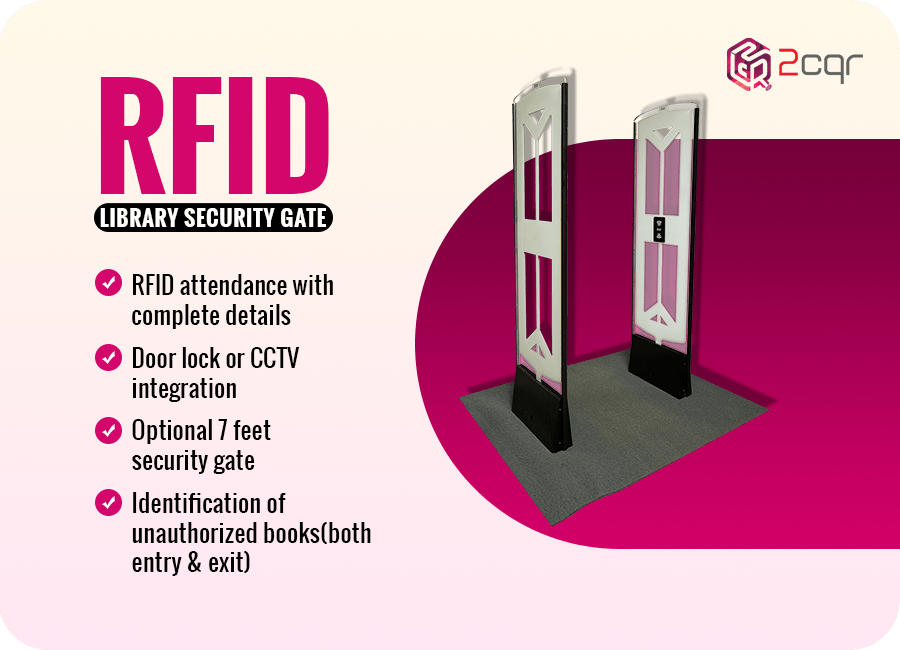
RFID technology for library has revolutionised library management activities, streamlining operations and improving efficiency. However, several myths prevent many libraries from adopting this game-changing technology.
In this article, we will debunk these misconceptions and shed light on the benefits of RFID technology for libraries of all sizes
Myth 1 : RFID Technology is only for big libraries
Fact: Many believe that RFID technology is exclusively designed for large libraries with extensive collections and numerous subscribers. However, the reality is quite different.
RFID technology is effective for resource tracking, stock organisation, cataloging, collection development, and book issuing and returning, regardless of the library’s size.
As long as the revenue generated outweighs the expenses involved in installation and maintenance, RFID technology can be beneficial for any library.
Myth 2 : RFID Technology is outdated
Fact: While AI and machine learning technologies are rapidly advancing, RFID technology remains relevant and adaptable.
RFID systems can be upgraded or downgraded to meet changing library needs, making them flexible and future-proof and they continue to deliver exceptional user experiences, enhancing library management processes.
Myth 3 : RFID Systems are not secure
Fact: Concerns regarding data security and privacy often deter libraries from adopting RFID technology. While it is true that maintaining data security can be challenging but it is not an inherent flaw of choosing RFID for libraries .
By selecting reliable RFID suppliers with experience in designing secure RFID systems and following data privacy standards during implementation, libraries can mitigate potential risks and ensure the protection of sensitive information.
Myth 4 : RFID Technology is expensive
Fact: The perception that RFID technology is costly is a common misconception. Although designing complex and efficient RFID systems requires equipment and professional support, the benefits outweigh the initial investment.
RFID technology in libraries enables hassle-free operations, saves valuable time spent on routine tasks, enhances user experience, and facilitates efficient management in the long run.
Additionally, addressing minor wear and tear and timely software upgrades can significantly reduce maintenance costs.
Myth 5 : RFID Technology is incompatible
Fact: Many believe that RFID systems are incompatible with existing library management software. However, this is not always the case as libraries can easily avoid integration issues by verifying software compatibility during the RFID system design phase.
By ensuring the necessary software and middleware are in place, libraries can seamlessly integrate RFID technology into their existing systems.
Conclusion:
By debunking these myths surrounding RFID technology for library management, we hope to encourage more libraries to consider its implementation. RFID technology offers numerous benefits, regardless of the library’s size, and can be adapted to meet evolving needs.
With proper implementation, RFID systems can enhance library operations, improve user experiences, and streamline overall management processes. Embracing RFID technology is a step towards a more efficient and automated library environment.


